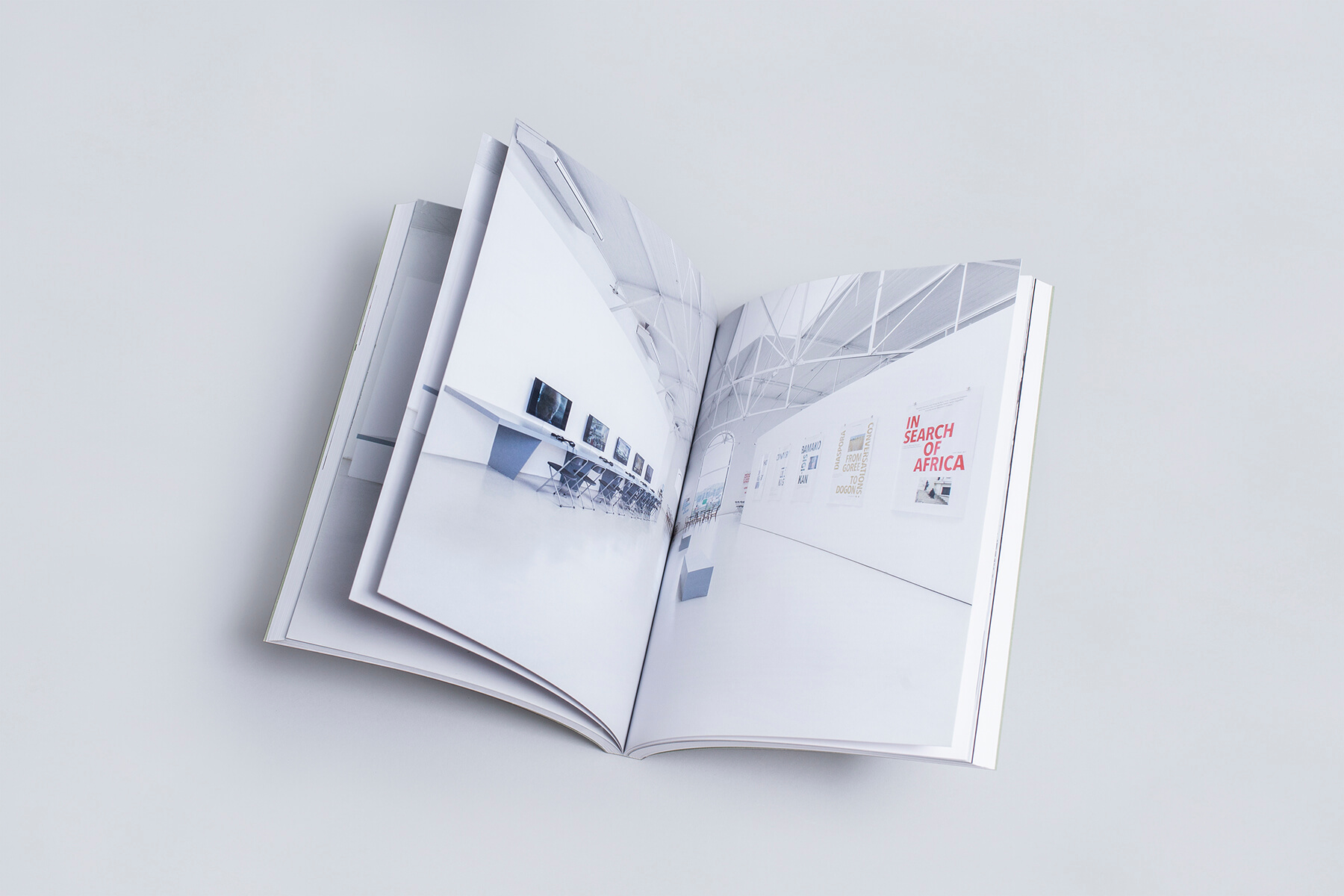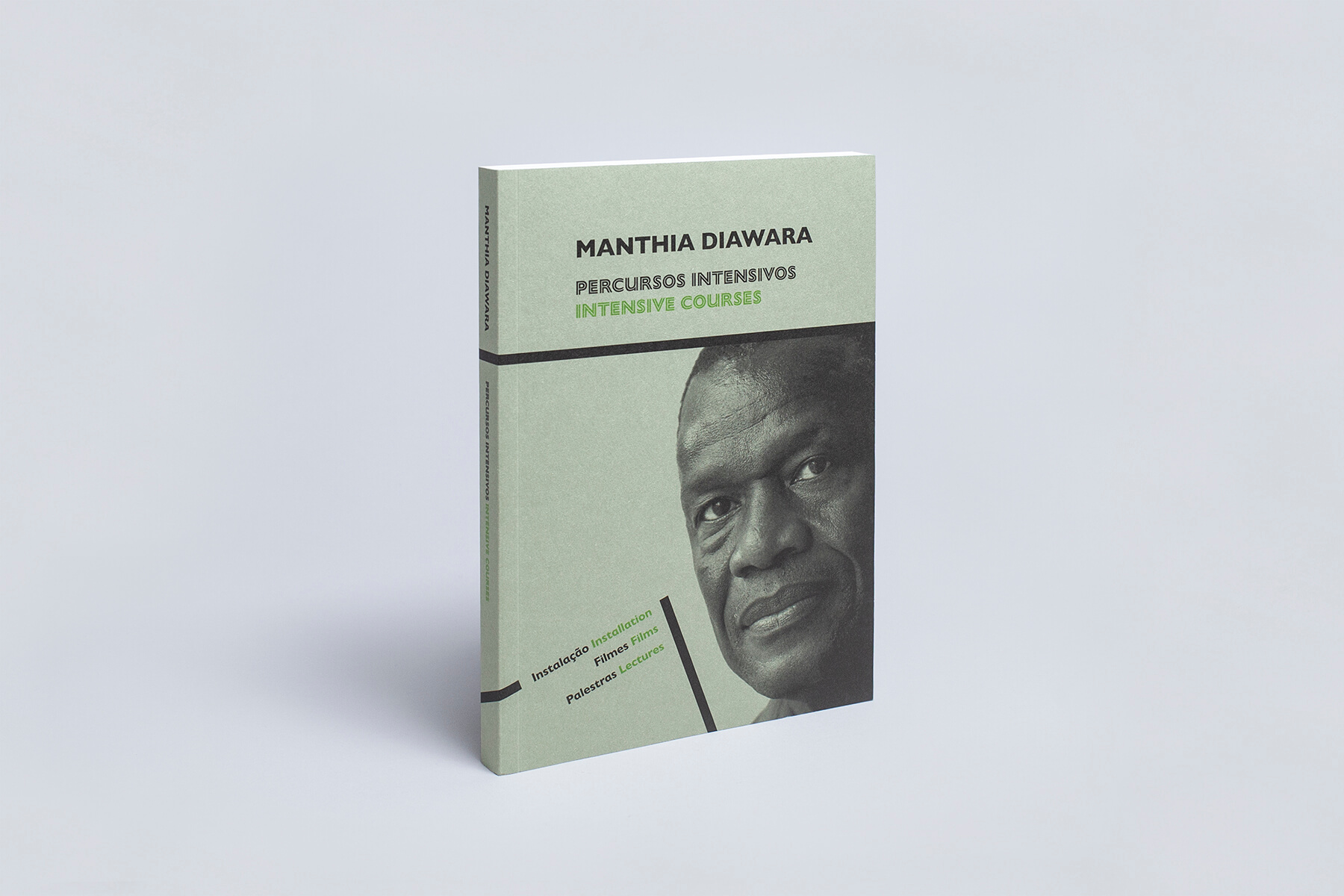The catalogue for the exhibition Manthia Diawara: Intensive Courses features a program dedicated exclusively to the Malian author from the African Diaspora. Diawara sought to provide a reflection on contemporary Africa through promoting knowledge of this work and his thinking. This programme also included a cycle of “Lectures on Film”, with the participation of Manuela Ribeiro Sanches, Ângela Ferreira, Jürgen Bock, António Tomás, Mamadou Ba and Manthia Diawara. The exhibition, alongside an installation of a kind of “study room” for which films and books by Diawara were made available for the consultation, was on view at the Galeria da Av. da India between May 12 and September 15, 2017. This publication gathers the institutional foreword by Sara Antónia Matos and the transcriptions of the contributions by Manuela Ribeiro Sanches, António Tomás, Mamadou Ba and Manthia Diawara.
“This publication will allow both those who did and did not have the priviledge of attending in situ to revisit the words and unique voices through the transcriptions of the conversation that took place in Galeria Avenida da Índia. This moment will certainly stand out in the history of this Municipal Gallery and help define its lines of programming.”
– Sara Antónia Matos
“ The notes that follow – which are very subjective but also, I hope, informative – were designed as an introduction to the work of Manthia Diawara, an invitation to take a closer look at a mind more complex than the simplicity of his language – though it only seems simple to the casual reader.”
– Manuela Ribeiro Sanches
“My aim here, considering the time I have been granted, is to discuss a number of aspects of Négritude, a theme which is revisited by Manthia Diawara through the dialogue between Léopold Sédar Senghor [1906-2001] and Wole Soyinka.”
– António Tomás
“For me, talking about Manthia Diawara is a political statement. Talking about his work, looking at it from the point of view of a member of the diaspora, which is what I am – my story doesn’t matter much, but I’m the son of immigrants from Guinea, born in Senegal and brought up in Guinea, then Guinea Bissau and Portugal – is very important to me.”
– Mamadou Ba
“It’s a long title, but it is part of this talk. I call it “Searching for a Place, Searching for a Voice, Searching for Freedom”, and I am really getting this from Edouard Glissant’s definition of opacité. He believed that every opacity is a search for a place, and when the place finds its place, then the place is freed. So I am really looking forward for that free space for myself. And I think that is a good way to explain my work.”
– Manthia Diawara





